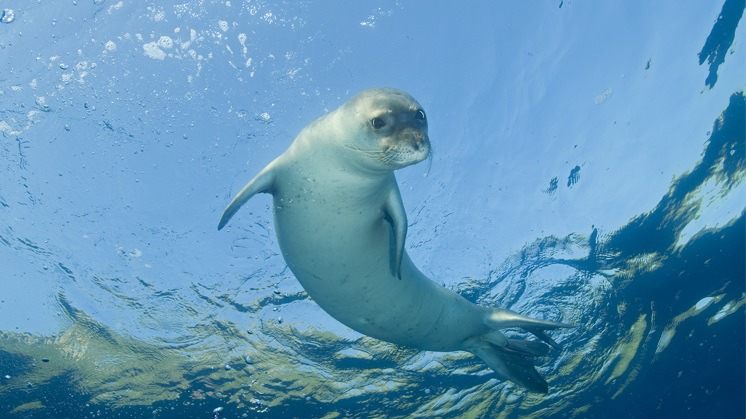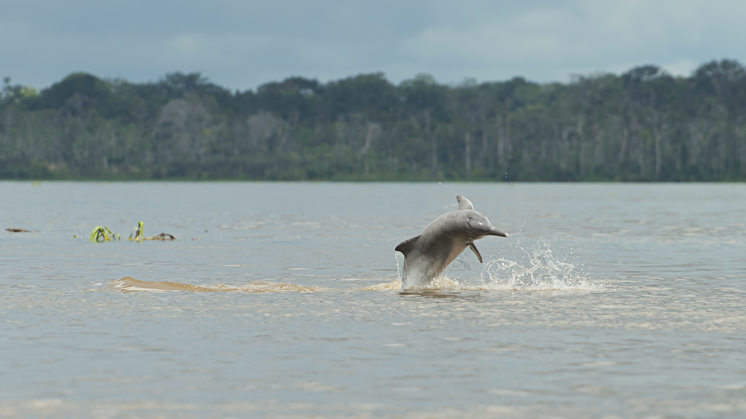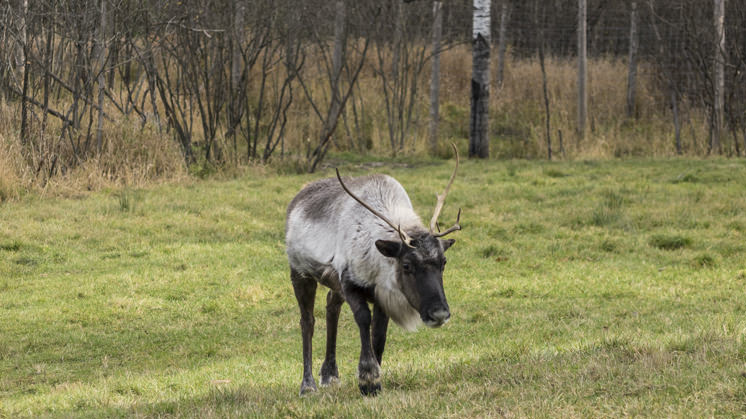How Will The Extinction Of Animals Effect Us In The Future
SPECIES EXTINCTION FROM GLOBAL WARMING
Climate change is accelerating the sixth extinction
#nature
World biodiversity has declined alarmingly in half a century: more than 25,000 species, almost a third of those known, are in danger of disappearing. Climatic change will be responsible for 8% of these.

In the concluding 60 years, the population of the Mediterranean monk seal (Monachus monachus) has dropped by 60%.

River dolphins (Inia geoffrensis) are in danger of extinction because of pollution.

The caribou (Rangifer tarandus) is an endangered species because information technology is finding information technology hard to survive the increasingly longer and hotter summers.
IN DANGER OF EXTINCTION: FROM HUNTER TO HUNTED
Would you like someone to tell y'all nearly it? Listen to this article. For those who want to change the world.
"Human activity, the consumption of fossil fuels, the acidification of the oceans, pollution, deforestation, and forced migrations threaten life forms of all kinds. It is estimated that one-third of corals, freshwater molluscs, sharks, and rays, i-fourth of all mammals, one-fifth of all reptiles, and one-sixth of all birds are heading towards extinction". This resounding paragraph taken from the volume The Sixth Extinction (2015) by announcer and Pulitzer Prize winner Elizabeth Kolbert is a good summary of the current situation of the natural biodiversity on planet World.
After this publication, the scientific community began to discuss and report the sixth extinction. The previous five extinctions had occurred over the last 450 1000000 years, due mainly to meteorites and volcanic eruptions. The sixth extinction, however, has to do with human beings. A study past the University of Connecticut External link, opens in new window. (U.s.), published in the Science journal, indicates that climate change is accelerating this, equally climate change by itself will cause the disappearance of nearly viii% of the current species.
External link, opens in new window. (U.s.), published in the Science journal, indicates that climate change is accelerating this, equally climate change by itself will cause the disappearance of nearly viii% of the current species.
Ample evidence demonstrating the reduction in the natural biodiversity of our planet can be found in the Red Listing of Threatened Species External link, opens in new window. from the International Marriage for Conservation of Nature (IUCN). In its 2017 edition, this list at present includes 87,967 species, of which 25,062 are in danger of extinction. In the oceans, to cite simply one such case, the rise in temperature and the acidification of water are turning coral reefs — previously lush underwater meadows full of algae, fish, molluscs, and crustaceans — into whitish deserts.
External link, opens in new window. from the International Marriage for Conservation of Nature (IUCN). In its 2017 edition, this list at present includes 87,967 species, of which 25,062 are in danger of extinction. In the oceans, to cite simply one such case, the rise in temperature and the acidification of water are turning coral reefs — previously lush underwater meadows full of algae, fish, molluscs, and crustaceans — into whitish deserts.
For their function, European scientists take been studying the reduction in the mass of flying insects in natural parks, and the data speaks for itself: 75% since 1990. Climate alter and pesticides appear to be the main causes of this significant decline. The refuse in the number of bees is a major concern. The Department of Agriculture in the United states has counted two.5 one thousand thousand hives in 2015 (date of the final report) compared to over 5 million in 1998. Who volition pollinate the plants that feed us? According to the Food and Agriculture Organisation of the Un (FAO), 100 species of crops provide 90% of humanity's nutrient, and 71% of these are pollinated by bees.
THE 6th GREAT EXTINCTION IN FIGURES
Decrease OF POPULATIONS
-81%
FRESHWATER SPECIES
River
dolphin
-38%
TERRESTRAL SPECIES
Reindeer
or caribou
-36%
MARINE
SPECIES
Mediterranean
monk seal
THE MAJOR THREATS:
- Loss of habitats
- Overexploitation of species
- Pollution
- Invasive species and diseases
- Climate change
SOURCE: WWF.
Crimson List OF THREATENED SPECIES
Total SPECIES EVALUATED:
130K
Total SPECIES THREATENED:
37,400
(28,77%)

- VULNERABLE: 29,920
- ENDANGERED: 5,236
- CRITICALLY
ENDANGERED: 2,244
THE MOST THREATENED SPECIES
THE Northward AMERICAN ASH TREE
CAUSE:
emerald ash borer, an invasive Asian beetle.
MADAGASCAR GRASSHOPPER AND MILLIPEDE
CAUSE:
degradation of their habitat due to the extraction of wood, grazing, and mining.
THE AFRICAN ANTILOPE
Cause:
disappearance of their habitat due to human occupation and climate change.
SNOW
LEOPARD
CAUSE:
reduction in their habitat due to human pressures.
Source: https://www.iberdrola.com/sustainability/climate-change-endangered-species
Posted by: leewelinigh.blogspot.com

0 Response to "How Will The Extinction Of Animals Effect Us In The Future"
Post a Comment